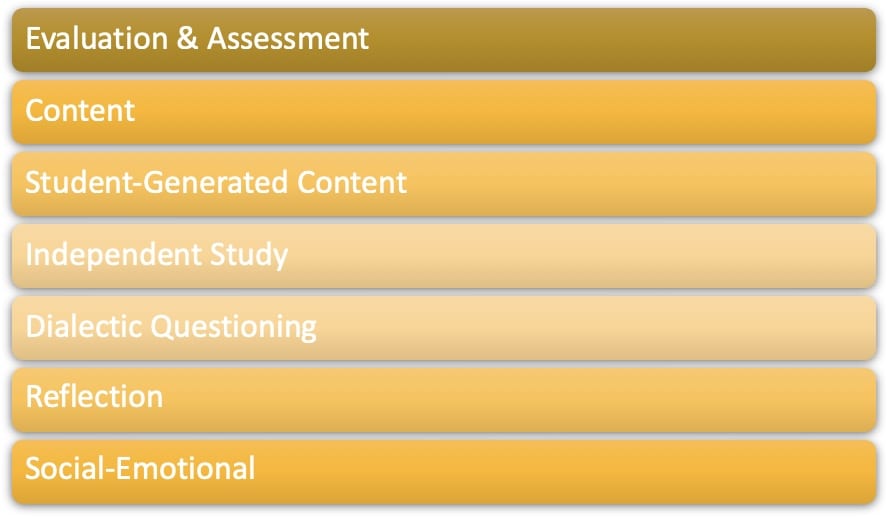The COVID-19 pandemic has forced school closure, thus shifting teaching and learning towards complete home-based learning (HBL). While we’ve been practising e-learning for many years, the deeper considerations to designing online learning environments that meaningfully engage students are still lacking.
A recent study in Singapore found that
- Student engagement in online learning context is paramount to their learning,
- There is no one software application for all the learning activities,
- Teacher professional development is necessary to keep them up-to-date,
- Online social networking platforms may be required for students’ discussion beyond official online lesson time, and
- Students need to be taught more self-directed skills and habits for learning in online and face-to-face contexts.
This last point is what this article will focus on. How do we prepare our children with more self-directed learning skills, and why are they important?
The expertise of teachers is not going to be matched by parents, no matter how well-intentioned. Teachers are professional experts with motivational skills to engage reluctant learners in individual, small, and whole-class settings. Many parents will not have this training, nor will they have access to the student’s peer group that teachers often leverage. Similarly, school culture is characterised by routine for students (e.g. a specific time each day to start, take breaks, and complete certain activities). Unfortunately, there is a risk that student achievement gaps may widen during this period if home-based learning is poorly executed. Therefore, both teachers and parents must work together to implement practical and evidence-based solutions to the challenges posed by the COVID-19 pandemic.
Distance Learning
Distance learning is a complex balance of online content and physical interaction with content not delivered on a computer screen. It is also important to remember that there are positives to home-based education – quality education is not always structured, academic or educational, and learning occurs in many different contexts. Home-based learning can allow students to engage with nature, bond with family, learn civic responsibility, and focus on social health.
Advice for teachers delivering content online
It is essential to ensure the transition from school to home-based learning is grounded in evidence as much as possible. Evidence suggests that online/distance education operates best as a system of dynamic, interrelated components, which may vary in terms of implementation by context.
Critically, within the field of distance education, there are three forms of interaction widely recognised as crucial to program development and delivery
- student-content,
- student-student,
- student-teacher.
These forms of interaction should be considered at each stage of planning for online/distance learning and are incorporated in each lesson.
Here are some other tips on encouraging students learning online to engage and ask questions.
- Setting expectations around when the teacher is available and how they can be contacted
- Timetabling student activities
- Scheduling’ office hours’ and regular check-ins with students, either online or via phone
- Posting to online discussion boards (questions for students to respond to etc.)
- Posting updated videos or lectures
- Use of frequent formative assessments to stay up to date with student progress.
Focus on Engaging Students With the Material
As you develop your lesson plans, brainstorm ways to keep students engaged and interested. Right now, if kids are learning without parents, they can easily tune out the message and ignore the learning material. However, if learning is fun and engaging, they are more likely to pay attention.
Another method to engage students online is to invite guest speakers and storytellers to your classroom. Consider bringing in guest speakers to have discussions about the topics covered in the school. For example, we have tailored hybrid courses that include a local and international tutor at the Agape School of Education (ASOE)!
Parent Strategies: Guiding your child to become a self-directed learner
We’ve previously written about the benefits and need of self-directed learning, especially in the COVID climate. Children who are not self-directed learners have a higher chance of being left behind, but it is essential to empower them to take advantage of this new technology.
We at the ASOE often take in students who have become “disconnected” from their schoolwork because they were not properly prepped. This is disheartening to see. We believe that it is the role of the school to help parents create a good learning environment and study skills in students.
That is why all our courses are customisable, our mother-tongue in lieu courses follow the MOELC syllabus, but our materials are all custom developed. In addition to a multitude of learning materials perfected over two decades of tutoring, the teachers at the ASOE are a calibre above the rest.
Not only do we have a healthy mix of native and local speakers, but many of our tutors were once students at the ASOE! We inspire a love for language in our students, which helps them score in their examinations and keeps them coming back to help other students succeed!
Join us next week for some practical tips on how you can create a self-directed learner, regardless of your child’s learning style.





0 Comments